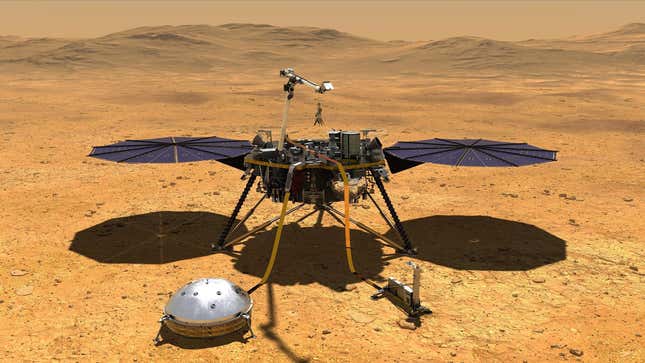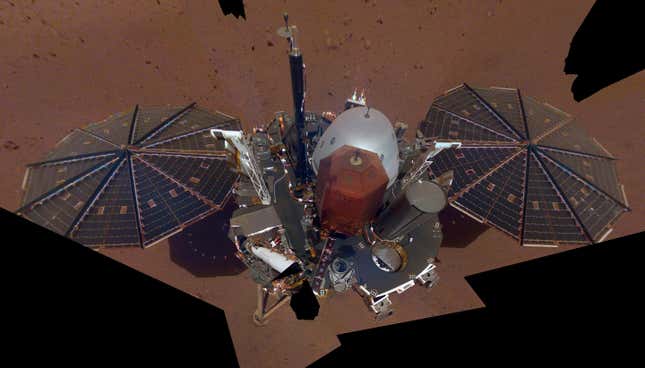
InSight—or, less elegantly, the Interior Exploration using Seismic Investigations, Geodesy and Heat Transport mission—is a robot that NASA’s JPL (with help from the European Space Agency) sent to Mars back in 2018.
It’s job was fairly simple. Or as simple as “a highly complex robot built on Earth then fired from a rocket into deep space then landed on another planet” can be, anyway. InSight put a seismometer on Mars and has sat around for the last four years reading and interpreting the data received from it, killing its time providing “accurate 3D models of the planet’s interior” and measuring “internal heat transfer using a heat probe called HP3 to study Mars’ early geological evolution.”

Aside from its main role, InSight has also been useful because it has a camera attached, allowing it to take some very nice photos of the surface of Mars. Its coolest achievement, however, at least for anyone not in the field of hardcore space science, is the fact that the robot was able—via vibrations detected on its solar panels—to record the sound of wind on Mars, which is the first time anyone had ever heard wind from another planet.
So yeah, nice robot! But like any robot sent into space, InSight is running on a battery, and while solar panels and judicious use of its systems have helped prolong its life, the time is fast approaching where it runs out of juice for good and is forced to power down.
This should be a routine matter. This is a machine, it’s going to stop working, we will all get on with our lives. But somebody at NASA had the bright/terrible idea to anthropomorphize InSight’s final days, and so instead of a press report saying “machine stopped working, it did neat stuff,” we have to read this:
Excuse me. I just have some...Martian dust in my eye.
I hope, one day soon, we ourselves are able to travel to Mars. And when we get there, I hope one of the first things we do is find InSight, and give it a hug.

